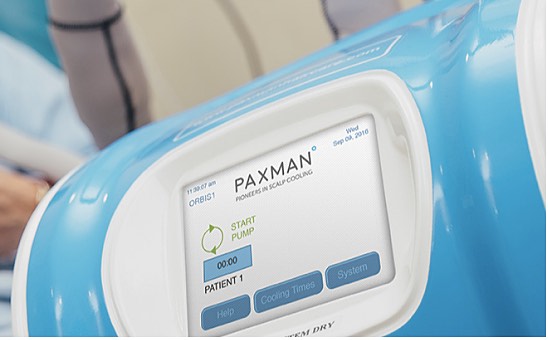While it may not be the most serious side effect associated with breast cancer chemotherapy, hair loss can be one of the most traumatic — especially for female patients.

“Hair loss takes a tremendous toll on the patient’s body image, and they no longer have the anonymity of hiding the disease; everyone can see that they’re sick,” Julie Rani Nangia, MD, an assistant professor of medicine at Baylor College of Medicine’s Lester and Sue Smith Breast Center, said in a press release.
“Patients and physicians have been hoping and searching for methods or therapies to prevent or reduce hair loss due to chemotherapy, but the options have been very limited due to the complexity of both the disease and the treatment,” she added.
Nangia, who is board certified in internal medicine and medical oncology, has a special interest in hereditary breast cancer, breast cancer prevention, and metastatic triple negative breast cancer, and is familiar with the psychological effects that hair loss has on her patients.
 Now, a new proprietary scalp cooling cap technology may help reduce hair loss in breast cancer patients who are undergoing taxane or anthracycline chemotherapy.
Now, a new proprietary scalp cooling cap technology may help reduce hair loss in breast cancer patients who are undergoing taxane or anthracycline chemotherapy.
The Orbis Paxman Hair Loss Prevention System is the subject of a clinical study currently underway led by scientists at Baylor and being conducted at seven trial sites across the country. Its results were recently presented at the 2016 San Antonio Breast Cancer Symposium Dec. 6-10.
The Orbis Paxman Hair Loss Prevention System, also known as the “Paxman cold cap,” consists of a two-cap system; the inner silicon cap contains a circulating refrigerated fluid, while the outer neoprene cap insulates the scalp, fitting to the patient’s head with a chin strap.
This system ensures that a consistent coolant temperature is maintained. The worn part of the apparatus is connected to a small machine which may be briefly detached from the patient to allow greater mobility during sessions.
The “SCALP (Scalp Cooling to Prevent Chemo-induced Hair Loss)” trial (NCT01986140) is a Phase 3 randomized, multicenter, open-label study designed to evaluate the safety and effectiveness of the Orbis Paxman Hair Loss Prevention System in reducing hair loss experienced by patients undergoing chemotherapy for breast cancer.
Study participants — 182 women with either stage 1 or 2 breast cancer slated to receive at least four cycles of either taxane or anthracycline-based chemotherapy — were randomized on a two to one ratio to determine whether they received the scalp cooling device or a no-cooling therapy.
The cohort of patients who received scalp cooling wore the device for 30 minutes immediately preceding their chemotherapy treatment, during the duration of their treatment, and then for another 90 minutes following their treatments.
“Chemotherapy treatment works by attacking rapidly dividing cells, but in doing this, it also targets rapidly-dividing hair cells, 90 percent of which are in the growth stage, resulting in hair loss,” Nangia said. “With scalp cooling, we are lowering the temperature of the scalp, thereby constricting the blood vessels and reducing the flow of blood to the hair follicles, which will help reduce hair loss by limiting the amount of chemo drugs reaching the follicles.”
Ninety-five patients in the cooling group and 47 from the no-cooling group were able to evaluated at the time of interim analysis, having completed four chemotherapy cycles. Among these subjects, 48 out of the 95 who had received scalp cooling showed hair preservation (50.5%), compared to none of the 47 patients who had received no cooling. This success rate has lead the researchers to stop the study early in order to release the data.
During the trial, participants receiving scalp cooling reported only mild side effects such as headache and temporary discomfort. This cohort of patients will be followed for five years to identify any potential adverse effects.
“Variation in hair retention across the sites is likely a result of different types of chemotherapy administered — taxanes have higher hair retention rates — and the learning curve for fitting and operating the scalp cooling cap by nurses and physicians,” Nangia said. “As the cap becomes more widely used, best practices will be developed to ensure maximum results.”
“We chose to focus this study on women with breast cancer because of its prevalence and large patient population, and women are more emotionally sensitive to hair loss in general,” she added. “Preventing hair loss may help improve the emotional well-being for patients and help them maintain a degree of privacy.”
The Paxman Scalp Cooling System has not yet been approved by the U.S. Food and Drug Administration (FDA) and is not currently available for sale in the United States, but Paxman Coolers now plans to file for FDA clearance for its device.


